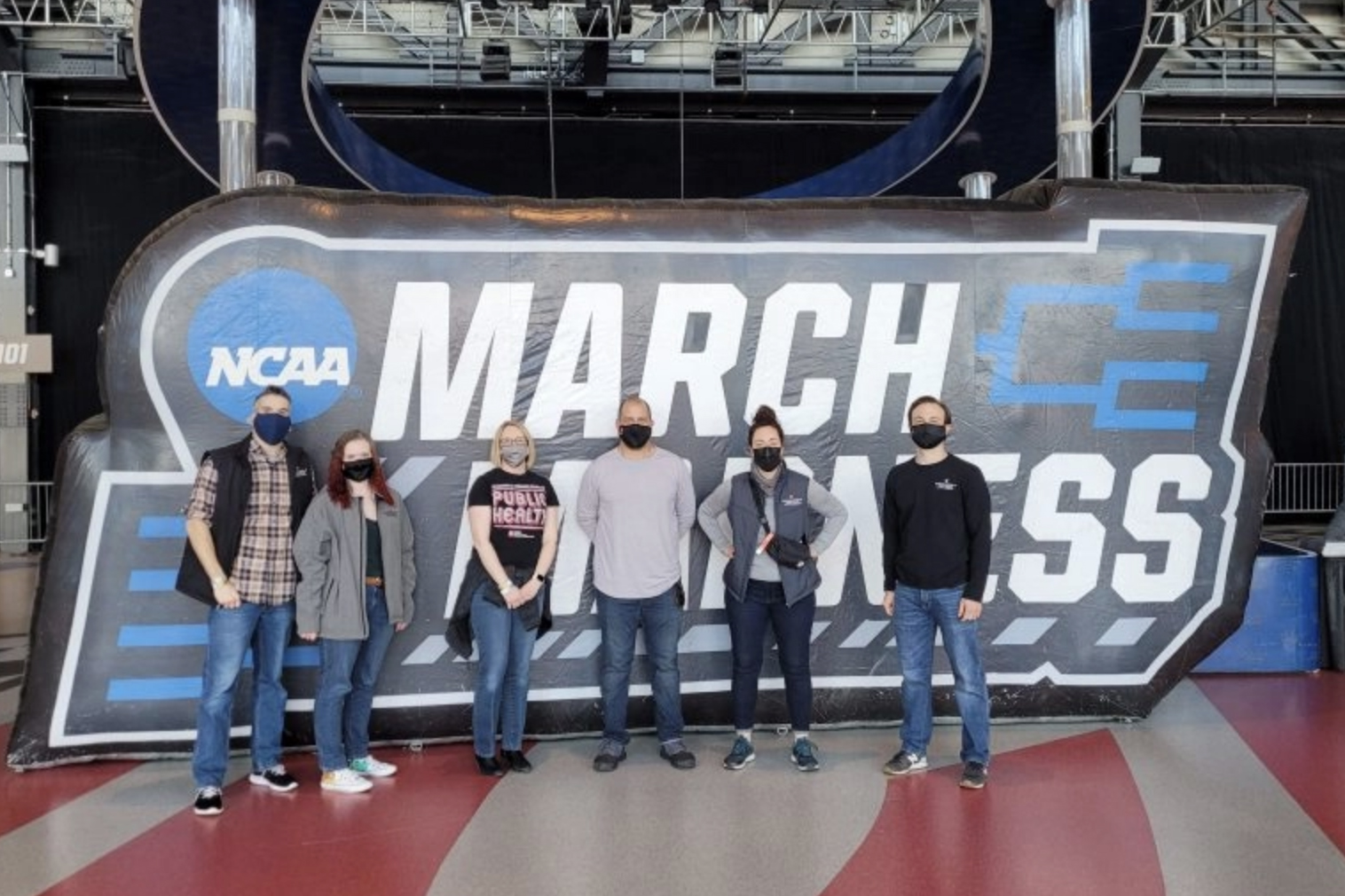Requiring masks at large indoor gatherings, such as sporting events and concerts, is an important strategy to reduce risk of COVID-19 transmission. Investigating how masks were worn at the 2021 NCAA Men’s Basketball Tournament, popularly known as March Madness, researchers from Regenstrief Institute, Indiana University Richard M. Fairbanks School of Public Health at IUPUI and Resolve to Save Lives, an initiative of Vital Strategies, report that just under three-quarters of attendees at five games wore masks correctly, despite a requirement for everyone to wear a mask. Masking behavior also varied widely among areas within the venue, further highlighting challenges in encouraging public health behaviors that reduce disease transmission.
The results of their study, “Mask-wearing behavior at the 2021 NCAA Men’s Basketball Tournament” are published in the August 16, 2021 issue of Journal of the American Medical Association (JAMA).
Over the course of five games in Indianapolis, the research scientists observed more than 20,000 spectators, of which 74 percent were correctly masked. At the time of the study, Marion County and the State of Indiana both had mask requirements. The venue also required masks and employed multiple enforcement and social messaging efforts.
“At a sporting event where the public health agencies and the venue were doing everything they could to encourage spectators to wear masks, we found that less than three out of every four spectators were correctly wearing masks, highlighting the challenge of getting the public to follow mask requirements,” said Regenstrief Institute Research Scientist and Fairbanks School of Public Health Professor of Health Policy and Management Joshua Vest, PhD, MPH, corresponding author of the JAMA study. “With vaccination rates still low and COVID transmission ongoing, the more people that are correctly and consistently masked at large events the better.”
The researchers noted important variations, as well. Females wore masks correctly much more frequently than males (80 percent versus 69 percent). Also, the highest mask-wearing percentages were in concession areas and at entrances. Correct mask-wearing dropped substantially in arena seating areas (67 percent) and in the upper deck seating areas (35 percent).
“This study is one of the first to provide evidence on masking behavior at large indoor events — evidence that individuals, public health officials and policy makers need as we all work to stay safe and reduce disease spread, while also trying to enjoy events like these that have the potential to become super-spreader events,” said Regenstrief Institute President and CEO Peter Embí, M.D., M.S., senior author of the JAMA study.
Spectators were classified as correctly masked following U.S. Centers for Disease Control and Prevention (CDC) guidelines, i.e., a cloth face covering or disposable surgical mask that covered the mouth and nose, including the nostrils, and extended below the chin. Observations were recorded via MaskCount®, a web-based application (app) invented by Dr. Embí and developed by Regenstrief Institute.
“Gathering real-time information on COVID-19 prevention measures allows communities to make recommendations based on the amount of virus spreading in their area and community behaviors,” said Shama Cash-Goldwasser, M.D., MPH, and Senior Technical Advisor at Resolve to Save Lives. “This is an impressive example of the importance of public health and event organizers working together, and teaches us how we can collaborate to reduce infections as large gatherings reopen.”
Authors of the study in addition to Drs. Vest and Embí are Justin Blackburn, PhD, of Fairbanks School of Public Health and Shama Cash-Goldwasser, M.D., MPH, and Eleanor Peters Bergquist, PhD, MSPH, MA, of Resolve to Save Lives.
The study was funded by Resolve to Save Lives, an initiative of Vital Strategies.



